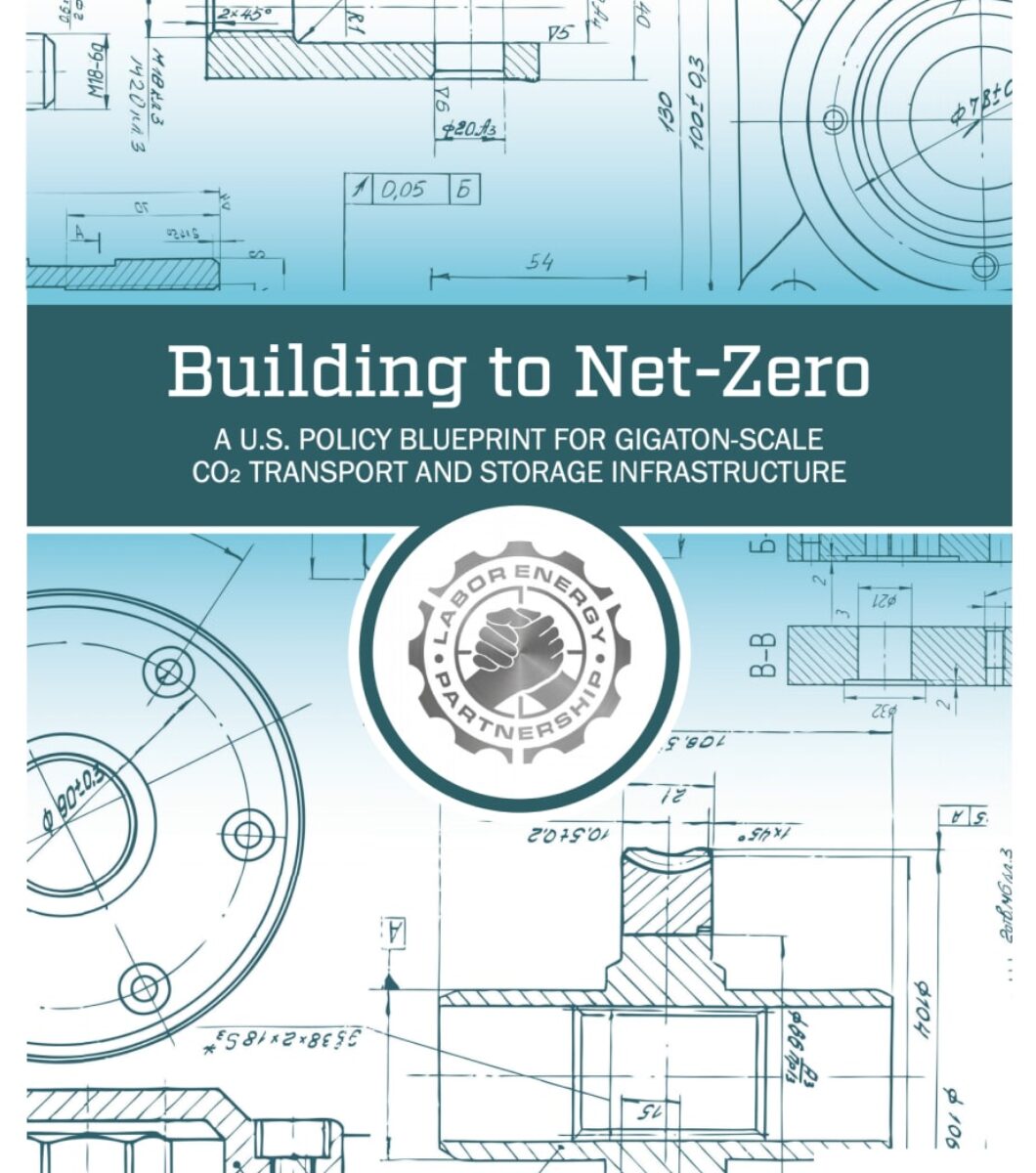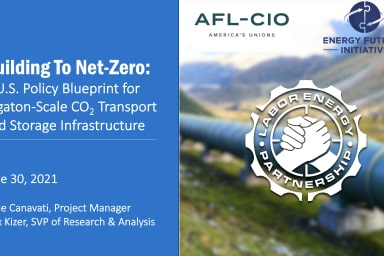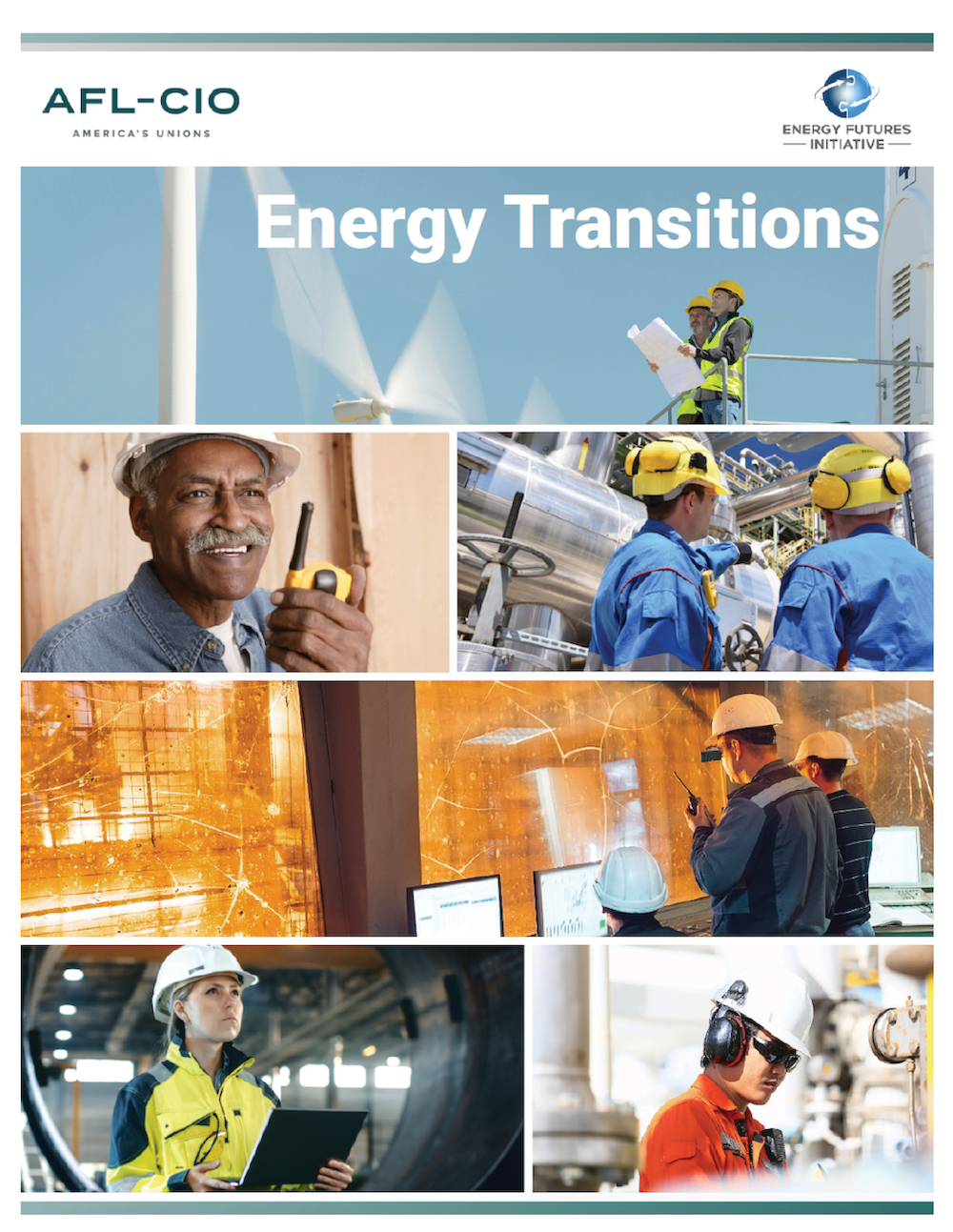We are pleased to release “Building to Net-Zero: A U.S. Policy Blueprint for Gigaton-Scale CO² Transport and Storage Infrastructure,” where we describe a comprehensive policy blueprint to enable the build-out of CO² infrastructure to support gigaton-scale emissions reductions in a manner that supports U.S. industry and its workforce and creates new, good-paying jobs.
This report was prepared by the Labor Energy Partnership (LEP) between the Energy Futures Initiative and the AFL-CIO, which is guided by the following principles:
- Successful social solutions to climate change must be based on an “all-of-the-above” energy source strategy that is regionally focused, flexible, preserves optionality, and addresses the crisis of stranded workers.
- An essential priority of all climate policy solutions is the preservation of existing jobs, wherever possible, and the creation of new ones that are equal to or better than those that are displaced.
- Climate policy represents an economic opportunity to the United States when the benefits of new technology deployment result in the creation of quality jobs and the creation of competitive domestic supply chains.
Translating these principles into action requires massive investments to mitigate climate change and policies that support the creation of new industries based on emerging clean-energy technologies, including carbon capture, utilization, and storage (CCUS) systems. This study is a follow-on to a workshop we held last December. The study focuses on policies and regulations that can expedite the creation of carbon dioxide transportation and storage infrastructure to support rapid and deep decarbonization of both industry and power generation, as well as new technologies like direct air capture and bioenergy with CCUS.
We believe these are essential technologies and actions and look forward to working with industry, policymakers, and other stakeholders to translate the recommendations in this study into deep decarbonization actions for the nation.




